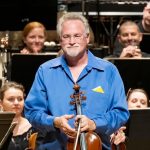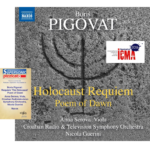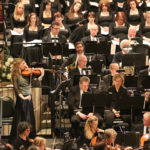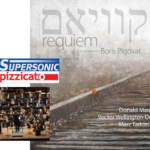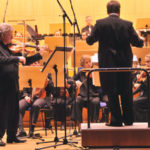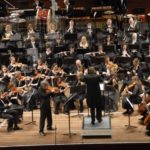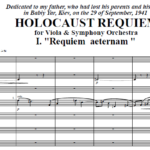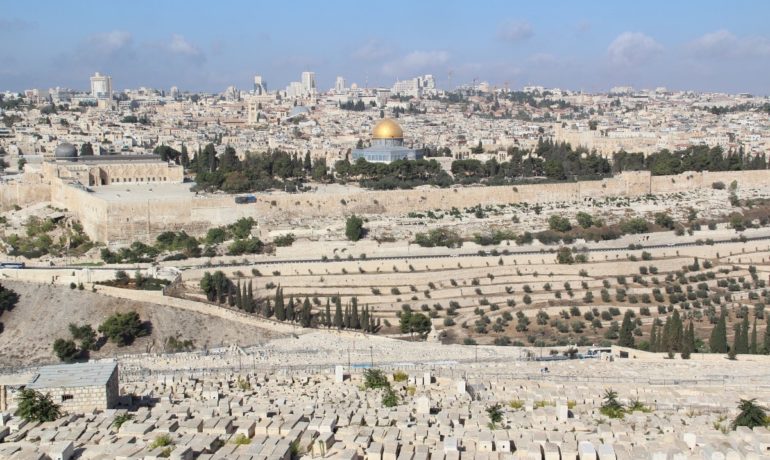
Tag: century 20

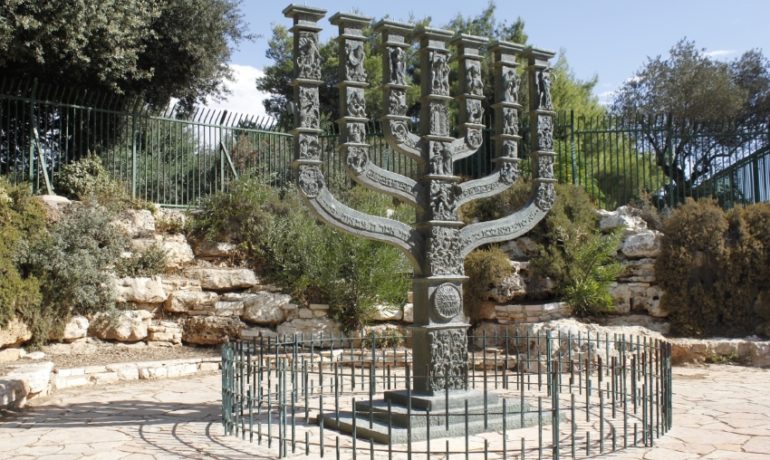
Nigun (1996)
For String Orchestra / String Quartet / Solo Viola / Solo Violin / Solo Violoncello
- Duration: ca. 5 minutes
The first version of Nigun was written in 1996, for string orchestra.
In this piece, I give expression to the tragic spirit that I feel in traditional Jewish music. However, there are no themes from traditional melodies in the piece. Rather, , the composition expresses the style and spiritual atmosphere of the ancient tunes.
The piece was premiered in Israel in 1997 by the Jerusalem Camerata, conducted by Horia Andreescu. Later it was performed by various orchestras in Israel and around the world.
In 1997, I prepared the version for solo violin. Unfortunately, this version has not yet been performed.
In 2008, I prepared the version for solo viola for the American violist Scott Slapin; he recorded it a few months later.
In 2010, I prepared the string quartet version for the Requiem CD (Atoll Records). This version is very similar to the 1996 version. However, I eliminated the contrabass part, and the opening unison of violas, violins and cellos I replaced with a violin solo. The piece was recorded by the Dominion String Quartet.
In 2017, I prepared the solo cello version for Israeli cellist Inbal Megiddo, who premiered it that autumn.
Below you can find recordings of various versions of Nigun.
Version for String Orchestra
Version for SOLO Viola
Samples from the "Requiem CD"
Dominion String Quartet
Donald Maurice, Viola
Yuri Gezentsvey, Violin
Rosemary Harris, Violin
David Chickering, Cello
2010
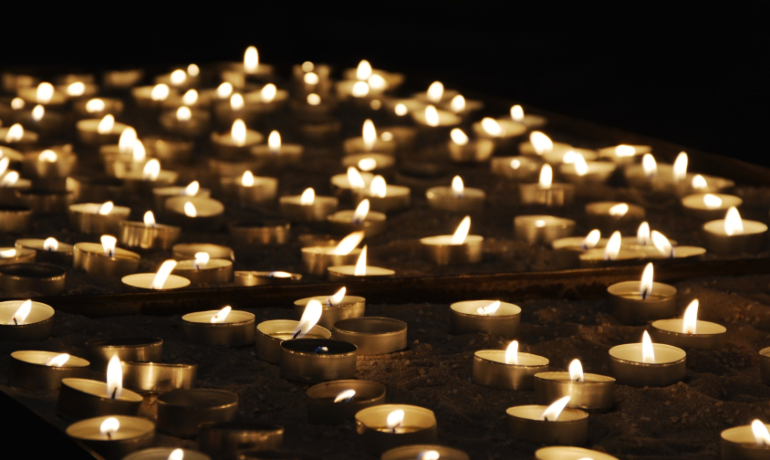
Prayer (1994-1995)
- Duration: ca. 6 minutes
I composed Prayer for Viola and Piano in 1994, after completing the third part of the Holocaust Requiem for Viola and Symphony Orchestra, Lacrimosa. I then collected materials for the fourth part of Requiem, Lux Aeterna. Therefore, Prayer is stylistically very similar to Requiem, and especially to Lux Aeterna. I even used one of the themes from Requiem: “Shema Yisrael”.
The “Shema Yisrael” theme opens and concludes Lux Aeterna. Hence, the best way to understand my expression of Prayer is by first listening to the Requiem recording, or at least to Lux Aeterna.
In 1995 I prepared the version of Prayer for Violin and Piano. In 2004, this version premiered in Carnegie Hall, in New York, performed by Carmit Zori (violin) and Gilbert Kalish (piano).
In 2010, the version Prayer for Viola and Piano was included in the “Requiem” CD launched by Atoll, performed by Donald Maurice (viola) and Richard Mapp (piano).
Both versions were published by the Israel Music Center – Music Publishing.
Below are recordings of two more great performances of both versions: by Gilad Karni (viola) and Anna Keiserman (piano), and by Litsa Tunnah (violin) and Petr Limonov (piano).
Version for Viola and Piano
Version for Violin and Piano
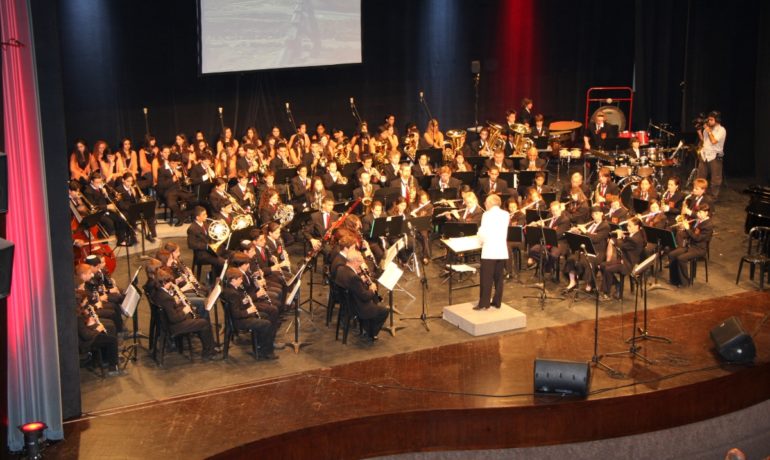
Massada (1997)
- Duration: ca. 14 minutes
- Picc, Fl, Ob, Bsn, P.Cl, 3 Cls, B.Cl, A.Sx, T.Sx, B.Sx, 4 Hns, 2 Cnts, 3 Tpts, 3 Tbns, Bar, 2 Tbas, Str. Bass, Timp, Perc (4).
In 1996 I met Michael Delman, the conductor of the Wind Orchestra of the Petah-Tikva Conservatoire (Israel).
Before meeting him for the first time, I had never written anything for wind orchestra, and I have viewed wind orchestration as limited to bands performing marches or any entertainment music, like songs, waltzes, polka, fantasy, and potpourri.
Mr. Delman opened a new world to me: the wind orchestra, with abilities and repertoire similar to the symphony orchestra. This type of orchestra is called a symphonic wind band or a wind symphony orchestra.
For more than 20 years, Michael Delman and I have collaborated. He and his orchestra premiered most of my compositions written for symphonic wind band. Mr. Delman himself conceived the theme of some of my wind band compositions, including Massada, Wind Of Yemen, Exile, and The Heroic Song.
Massada was the first piece that I composed for symphonic wind band. It was composed, and also performed for the first time, in 1997.
Massada (or Masada) is a fortress near the Dead Sea, whose defenders resisted the Romans for seven years and then committed suicide rather than being captured and enslaved by the Romans.
In 1999, Michael Delman and the Petah-Tikva Conservatoire Wind Orchestra performed the European premiere of Massada in the wind-orchestra competition in Zurich, Switzerland, where they won first prize in their category.
They also performed Massada in Festival Mid-Europe ’99 in Schladming, Austria.
Since then, Massada has been performed by various orchestras in Europe, the United States, and in South America, and several orchestras have recorded it.
The most important performances took place at:
- ISCM “World Music Days 2000” Festival (Luxembourg)
Grand Orchestre “Musique Royale des Guides” (from Belgium)
Conductor: Norbert Nozy - 2003 WASBE Conference (Jonkoping, Sweden)
The Symphonic Band of Kiskunfelegyhaza (from Hungary)
Conductor: Ferenc Jankovszki - 2006 CBDNA Conference (Nashville, USA)
Murray State University Wind Ensemble
Conductor: Dennis Johnson
Below are some recordings.
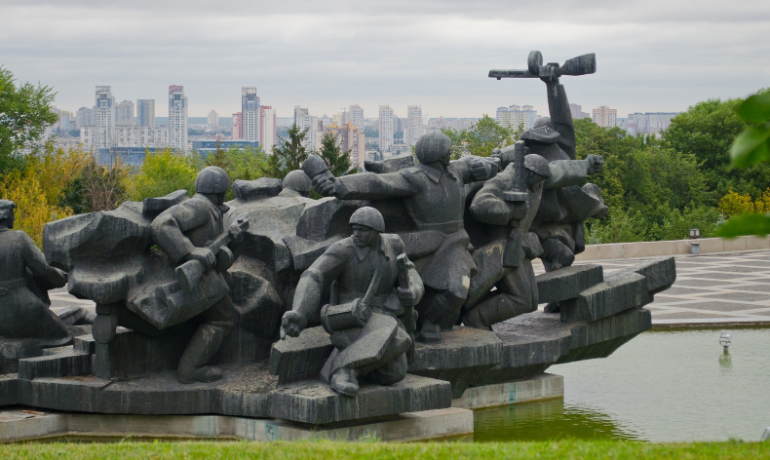
Symphony No.1 "Memorial" (1984; revised in 1987)
- Duration: ca. 28 minutes
- 3 Fls (Picc), 2 Obs (E.Hn), 3 Cls (B.Cl), 2 Bsns, 4 Hns, 3 Tpts, 3 Tbns, Tuba, Timp, Perc (4), Cel, Hp, Str.
The Memorial symphony is dedicated to the victims of World War II, a theme that touched me personally.
I was very excited for the composition’s premiere to be performed by the USSR Symphony Cinema Orchestra, in 1988, in Moscow. For a young composer, this was an amazing opportunity. Plus, this was the first time that I heard the symphony performed live, and it was also recorded — by the best orchestra I could have wished for at that time.
Below, is the live recording of the premiere. The recording is old, and there are some background noises, so please accept my apology for that.
The Ministry of Movies Industry Symphony Orchestra, Moscow
Emin Khachaturian, Conductor
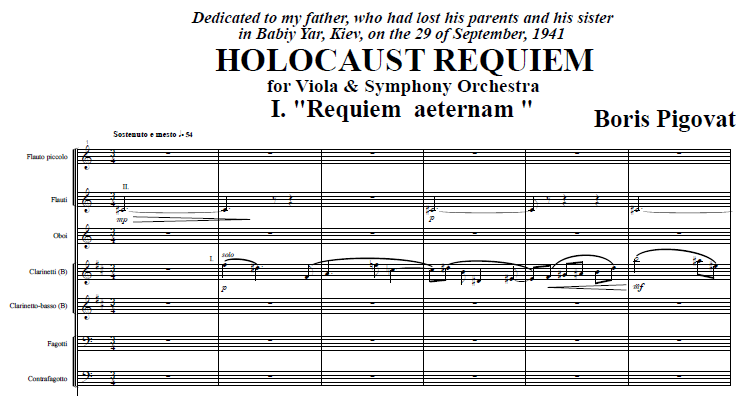
Holocaust Requiem for Viola and Symphony Orchestra (1994-1995)
- Duration: ca. 46 minutes
- 3 Fls (Picc), 2 Obs, 3 Cls (B.Cl) 2 Bsns, C.Bn, 4 Hns, 3 Tpts, 3 Tbns, Tba, Timp, Perc (4), Cel, Pno, Hp, Vla solo, Str.
For years, I felt the necessity to write a work dedicated to the Holocaust. After my immigration to Israel I started to consider different ideas for such a work. At first, I wanted to write a requiem for the standard orchestration: soloists, choir, orchestra and, maybe, narrator. At that time, Yuri Gandelsman, the principal violist of the Israel Philharmonic Orchestra, asked me to write something for him. He was an excellent violist whom I had known for years – we learned at the same time at Gnessin College and then at Gnessin Institute (Academy of Music). So, when he asked me to write for him a work for viola and symphony orchestra, I suddenly understood – I would write a requiem for viola and symphony orchestra! I would write the work without the text, without the choir and solo singers, but I would try to save the tragic atmosphere of a traditional requiem.
I dedicated Requiem to my father, whose family was murdered in Babi Yar by Nazis in September of 1941. It took me about two years to write it, during which I felt that he was waiting for me to complete it. The day after I finished writing Requiem, my father passed away.
In the end, Yuri Gandelsman did not perform Requiem.
In October 1995, less than a year after it’s composition, Requiem received the ACUM (Israeli ASCAP) award.
The world premiere of Requiem took place in October 2001, at the memorial evening dedicated to Babi Yar tragedy, in Kiev, by remarkable violist Rainer Moog and the Symphony Orchestra of National Philarmonic Society of Ukraine, conducted by Roman Kofman.
Requiem was performed again seven years later at the Concert of Remembrance for the 70th Anniversary of Kristallnacht, at an outstanding performance by Donald Maurice and the Vector Wellington Orchestra in New Zealand, conducted by Marc Taddei. Later, a live recording was released by Atoll with three more of my pieces.
After listening for the Kiev recording of Requiem, violist Anna Serova and conductor Nicola Guerini pushed Naxos to record Requiem. The Naxos compilation includes another piece that I wrote for Anna: Poem of Dawn for Viola and Symphony Orchestra.
Both the Atoll CD (in 2011) and the Naxos CD (in 2015) received Pizzicato’s Supersonic Award, and the Naxos CD was also nominated for the 2016 ICMA award.
In 2021, Professor Maurice and his PhD student Xi (Lucy) Liu produced a film Lacrimosa Dies Illa, which is based on Requiem, as Lucy’s PhD research. The film premiere took place in Wellington’s Penthouse Cinema in May 2021.
Click here for more information about this documentary. The film itself is available online here (the trailer can be found here).
In September 2023, the US premiere of Holocaust Requiem took place in Annapolis by Peter Minkler and Annapolis Symphony Orchestra, conducted by José-Luis Novo.
I am honored to have such wonderful performers for the piece!
Below is a live recording of the outstanding premiere performed in Kiev and few samples from a performance in Wellington. Additional recordings and information about Requiem performances can be found in my website by using the SEARCH widget from the main menu or the sidebar (type requiem).
Recording from Memorial Evening dedicated to Babi Yar tradegy in Kiev, 2001
Rainer Moog, Viola
Roman Kofman, Conductor
Symphony Orchestra National Philarmonic Society of Ukraine
Samples from recording from Concert of Remenbrance for Kristallnacht Anniversary in Wellington, 2008
Donald Maurice, Viola
Marc Taddei, Conductor
Vector Wellington Orchestra
Pigovat's Holocaust Requiem may prove to be one of the three finest masterpieces ever written for viola, with the Bartók and Walton Viola concertos. It now primarily needs time and exposure and to become known in contemporary 21st century literature.
